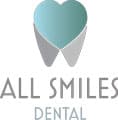Unbeknownst to many people, there is more to your dental health than just your teeth. Your gums also play a huge part because they protect the below-the-surface areas of your teeth – areas that are significantly more susceptible to disease than the exposed surface of the teeth.
However, sometimes your gums can become compromised, meaning bacteria can sneak in between the teeth and gums. As a result, you can quickly develop tooth decay, or even gum disease and infection. Keeping your gums in excellent condition is a critical part of your dental health, and having a regular dental exam can help you stop problems before they start.
What is Periodontal Disease?
The term “periodontal disease” describes a wide range of gum conditions, beginning with minor inflammation and ending at critical damage to the bone and soft tissue that support your teeth. Most of these diseases are caused by bacteria invading the soft tissue around your teeth, and they worsen over time without treatment.
You may have heard your hygienist say you have gingivitis, which is the earliest level of gum disease and rather common. This stage is fairly easy to deal with, generally reversible with a professional cleaning, followed up by healthy brushing and flossing habits. But if gingivitis is ignored, it can progress into more advanced stages, referred to as periodontitis. At this point, resulting problems can become more severe. Patients can experience loose teeth and even loss of bone and tissue.
Warning Signs of Periodontal Disease
The simplest way to prevent periodontal issues is to maintain good brushing and flossing habits. Having regular preventative dentistry visits is also a must. Be aware of your gum health by watching for the following warning signs:
- Swollen, tender, red gums;
- Gums that bleed easily;
- Gums that are pulling away from your teeth;
- Persistent bad breath;
- A bad taste in your mouth;
- Loose (permanent) teeth;
- A noticeable change in your teeth alignment or the way they fit together.
What Periodontal Surgery Involves
If a patient’s gum disease cannot successfully be treated with deep cleaning, periodontal surgery becomes necessary. In flap surgery, the gums are lifted back to allow for removal of severe tartar. Then, the gums are sutured back into position, ensuring a snug fit to help prevent further infections.
In the event of severe bone or tissue loss, your dentist may recommend grafting, which involves the insertion of natural or synthetic bone in bone loss areas, encouraging regrowth. Guided tissue regeneration is often paired with bone grafting. When this is the case, a small piece of mesh material is placed between the gum tissue and bone, guiding the proper regrowth of bone and connective tissue.
Count on All Smiles Dental
Our team at All Smiles Dental is highly experienced in periodontics in NYC. We also offer financing options so that you can make your dental and gum health a priority no matter your budget. Contact our office today or make an appointment online to keep your teeth (and gums!) healthy.
By submitting this form you agree to be contacted via phone/text/email.


